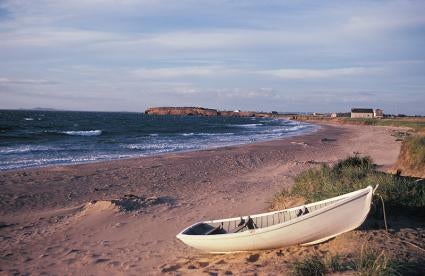Waters of US Rule Appears to be Headed for 6th Circuit Review
The 6th Circuit Court of Appeals, in a 2-1 ruling confirmed that it has jurisdiction to hear Petitions consolidated from 7 other Circuit Courts, challenging the validity of the Waters of the U.S. (WOTUS) Rule issued last June by the Corps and EPA. Industry challengers argued the Circuit Court petition process could not be used to challenge the WOTUS Rule and sought dismissal of the Petitions, which would have allowed each of the 11 separate District Court appeals filed by various states, industry and environmental groups, to proceed. As a result of the 6th Circuit ruling, the nationwide stay it previously imposed, prohibiting use of the WOTUS Rule, remains in effect. No time frame has been set for a 6th Circuit ruling on the merits. Motions for reconsideration by the entire panel of 6th Circuit judges have been filed by states and industry groups. For now, federal oversight of wetlands, streams and other waters remains subject to the informal guidance issued by the agencies in 2007 following the Supreme Court’s decision in Rapanos v. United States.
USFW/NMFS Publish Final Changes for Critical Habitat Under the ESA
The U.S. Fish and Wildlife Service and the National Marine Fisheries Service (together, the “Services”) recently published final regulatory changes and policies covering the designation and protection of critical habitat under the Endangered Species Act (“ESA”). These changes are:
- A final rule modifying the procedures for the designation of critical habitat;
- A related final policy on the exclusion of lands or waters from a critical habitat designation pursuant to ESA Section 4(b)(2); and
- A final rule revising the definition of “destruction or adverse modification” of critical habitat as used in consultations on federal agency actions under ESA Section 7.
The final rules and policy became effective on March 14, 2016. As adopted, these regulatory and policy changes increase the discretion of the Services to broadly designate occupied and unoccupied areas as critical habitat, and shift the focus of adverse modification towards a “conservation” standard. For federal authorizations, actions and permitting decisions that may occur within designated critical habitat, these revisions also present the specter of increased requirements and additional project modifications necessary to meet the new “adverse modification” definition to be applied in the ESA Section 7 consultation process.
Ecology Withdraws Draft Carbon Rule--Will Release New Version This Spring
Earlier this year, the Washington State Department of Ecology proposed the draft Clean Air Rule, which would limit carbon emissions in Washington. On February 25, amid stakeholder feedback and public comment, Ecology announced that it was withdrawing the draft carbon emissions rule it relased in January. According to a news release, it will re-draft areas of the rule “clarifying compliance options, transparency in the proposed credit system, and considerations for Washington manufacturers whose products are sensitive to global pricing”. Previously scheduled hearings will be rescheduled and a new draft rule is planned for release later this spring. The rule's final adoption is still planned for later this summer.
U.S. Fish and Wildlife Proposes Revision to 35 Year-Old Mitigation Policy
On March 7th, The U.S. Fish and Wildlife Service announced proposed revisions to its Mitigation Policy, which since 1981, has guided recommendations on mitigating adverse impacts on fish, wildlife, plants, and their habitats. The proposed revision applies a “landscape-scale” approach to mitigation, consistent with the recent Presidential Memorandum on Landscape Mitigation issued last fall. The revised policy could affect Section 7 consultations and Habitat Conservation Plans under Section 10 of the Endangered Species Act. Comments on the proposed policy revisions are being accepted until May 9, 2016.
FEMA Proposing to Create a Deductible as Part of its Public Assistance Program
On January 13, FEMA issued a proposed rule that would establish a state or local “deductible” as part of FEMA’s Public Assistance Program under the Stafford Disaster Relief and Emergency Assistance Act. Under this proposed rule, a state or local government would have to provide a “pre-determined level of financial or other commitment” demonstrating how it had contributed to the cost of hazard reduction or restoration before FEMA will provide additional funds for clean-up and restoration after a Presidential major disaster declaration. FEMA apparently believes that by establishing a state or local deductible, FEMA will incentivize states and local governments to improve their disaster planning and risk mitigation, thereby reducing the scale of the disaster and the need for emergency assistance. The form and amount of any deductible are still under consideration. If adopted, this Proposed Rule could have significant implications. In order to meet the deductible requirement, State and local governments could modify their regulations, including local development regulations, to limit development opportunities in certain areas (e.g., coastal or riverine areas subject to flooding) that are viewed as potentially higher risk for disaster. They could also seek to require additional project mitigation designed to offset any disaster risk (e.g., requiring additional setbacks from shorelines or steep slopes), or require addition mitigation fees to fund community disaster reduction projects.
SEPA Rulemaking Update
The Department of Ecology has opened a public comment period regarding the creation of a new exemption to help streamline and remove barriers in the replacement and repair of old municipal bridges by explicitly exempting the projects from SEPA review. Current administrative regulations exempt some work related to bridges, but only when the project is conducted by the Washington Department of Transportation and the bridge is “in operation.” WAC 197-11-200(26). The proposed WAC 197-11-200(27) creates a new categorical exemption for structurally deficient city, town and county bridges, regardless of whether they are currently in operation. Ecology will hold a public hearing on March 23, 2016 and the public comment period runs until April 1, 2016.







 i
i


